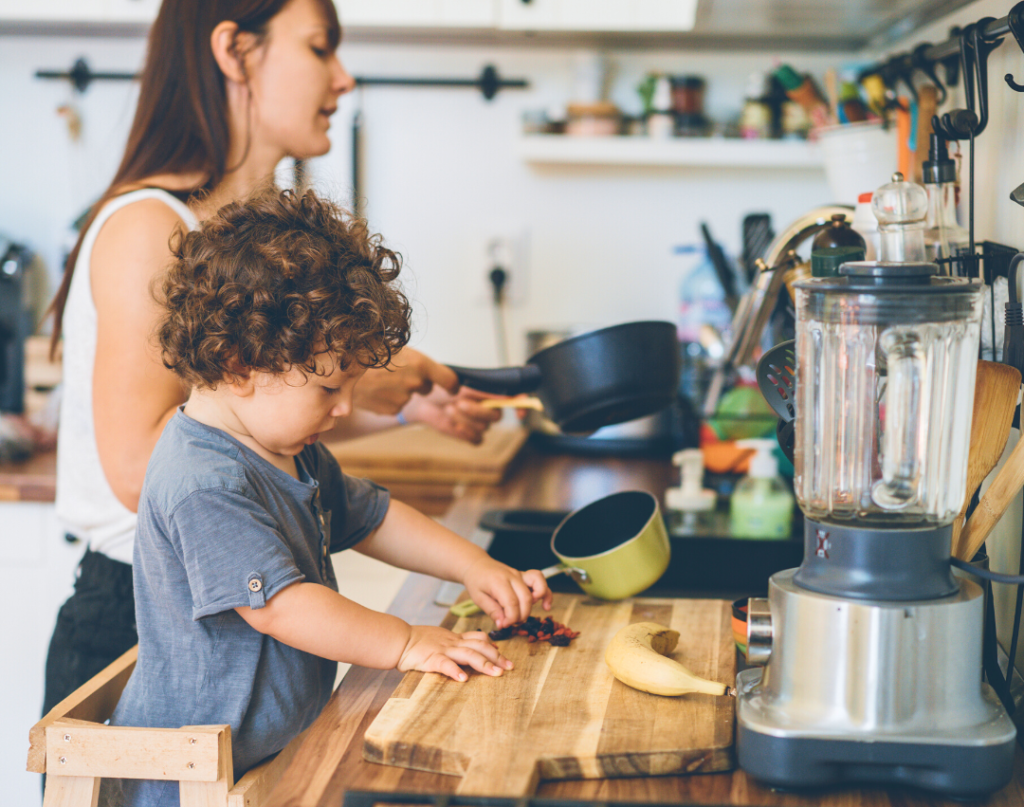With the holidays coming up over the next few months, many of us will be spending extra time in the kitchen. Whether you are roasting a turkey, making collard greens, throwing together mac and cheese, or even popping open a can of gravy, it can be beneficial to get your child involved! If it’s safe and appropriate, having your child lend a helping hand in the kitchen can be a great way to work on developing early language and communication goals! Here are some tips to encourage the use of language in the kitchen:
Label, label, label! Instead of asking, “what is this”, try to verbally label common objects as your child may not have the language to respond. Repeatedly naming objects throughout an activity supports understanding and use of language. You can do this for almost any object in the kitchen, whether it’s a utensil or a description related to that object!
- Utensils/dishware: cup, spoon, fork, knife, pot, pan, mug
- Foods: milk, water, egg, cookie, cake, apple, butter
- Actions: open, close, mix, stir, pour, wash, chop, bake
- Descriptors: hot, cold, wet, yummy, sticky
- Exclamatory words: yay, wow, mmm, yuck, eww, oooh
Comment on what is going on! Talk through each step of the baking or cooking process with your child. Let them know what you’re doing during each part, and if they’re old enough, you can tell them why you’re doing it (i.e., “I am pouring milk in” and what your child is doing (i.e., “You are mixing”). Some tips for success:
- Keep phrases short
- Repeat target words often
- Don’t put pressure on them to respond or copy you
Copy & add! Listen, repeat, and add onto the words or phrases your child says. If your child already understands or is comfortable with a phrase, try to incorporate that into what you are doing to build on that foundation. This can encourage your child to use longer phrases. For example:
- Child: “More egg!”
- You: “Yes, we need more eggs!”
Tempt them! A small bit of self-sabotage during the meal prep process can help prompt your child to use language. Providing a reason for your child to communicate your error or suggest the next step can help motivate them to use language. Try these:
- Leave an ingredient or utensil in sight but out of their reach
- Keep a box, jar, or container unopened and try to pour it
Getting your child into the kitchen is not only a great way to build language, but it can also help them develop comfortability around experiencing new foods as well as their relationship to mealtimes.
Written by Marsha Maloloyon M.S., CF-SLP


